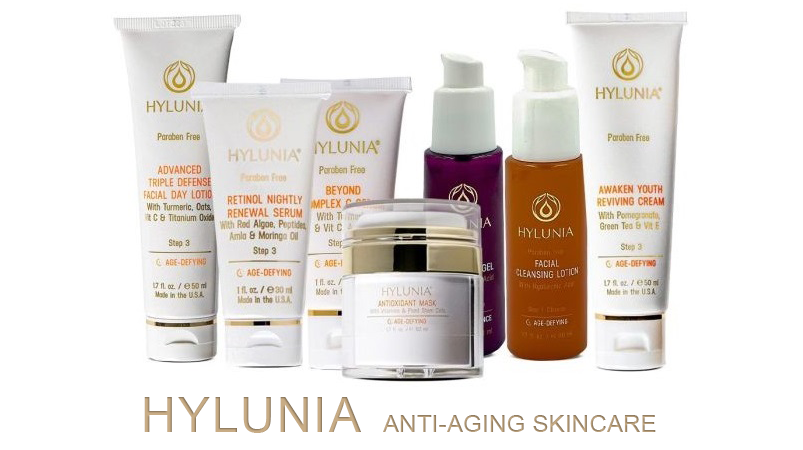
As skin ages, it faces more challenges from environmental stress, sun damage, and natural cell breakdown. This is where antioxidants come into play. Think of them as the bodyguards for your skin, defending against harmful molecules that speed up aging. Antioxidants can keep skin looking youthful and vibrant, making them a must in any anti-aging skincare routine.
Contents
- What Are Antioxidants and How Do They Work?
- Top Antioxidants to Look for in Skincare
- Resveratrol: The Age-Defying Molecule
- Coenzyme Q10: The Skin Energizer
- Green Tea Extract: A Soothing, Anti-Inflammatory Hero
- Building an Antioxidant-Rich Skincare Routine
- The Long-Term Benefits of Antioxidants for Aging Skin
What Are Antioxidants and How Do They Work?
Antioxidants are molecules that help neutralize free radicals—unstable atoms that can damage cells, leading to premature aging and other skin issues. Free radicals are generated by everything from UV rays and pollution to smoking and stress. When left unchecked, they cause oxidative stress, which leads to wrinkles, fine lines, and dullness.
Why Free Radicals Speed Up Aging
Free radicals are like tiny thieves, stealing electrons from healthy skin cells. This process weakens cells, breaks down collagen, and eventually leads to visible signs of aging. By neutralizing free radicals, antioxidants help prevent this damage, protecting your skin’s structure and keeping it resilient.
How Antioxidants Combat Free Radicals
Antioxidants stop free radicals by donating electrons, essentially calming them down so they no longer harm your skin. This keeps skin cells strong, preserves collagen, and promotes a brighter, more youthful complexion.
Top Antioxidants to Look for in Skincare
Not all antioxidants work the same way, but each brings unique benefits to the table. Here are some of the most effective antioxidants for aging skin, along with tips on how to incorporate them into your routine.
Vitamin C: The Brightening Superhero
Vitamin C is one of the most popular antioxidants, and for good reason. It brightens skin, fades dark spots, and boosts collagen production. Vitamin C is especially powerful for aging skin because it not only protects against free radicals but also promotes firmness and reduces hyperpigmentation.
How to Use Vitamin C in Your Routine
- Apply a vitamin C serum in the morning to protect against daily environmental stressors.
- Pair it with sunscreen for an even stronger shield against UV rays.
- Look for stabilized forms like ascorbic acid to ensure the vitamin stays effective.
A daily dose of vitamin C serum is like armor for your skin, keeping it bright, firm, and protected.
Vitamin E: The Moisture Boosting Antioxidant
Vitamin E is another powerful antioxidant that helps to strengthen the skin barrier and lock in moisture. It’s particularly beneficial for dry or mature skin as it reduces transepidermal water loss, keeping skin soft and hydrated.
Using Vitamin E for Maximum Benefit
Vitamin E is often found in combination with other antioxidants, as it works especially well alongside vitamin C. It’s usually present in moisturizers and serums, making it easy to include in your routine for added hydration and protection.
Resveratrol: The Age-Defying Molecule
Resveratrol, a compound found in grapes and red wine, is known for its anti-inflammatory and antioxidant properties. It’s a fantastic addition to skincare because it helps reduce redness, soothes irritation, and provides a strong defense against oxidative stress.
Why Resveratrol is Ideal for Aging Skin
Resveratrol is a potent anti-aging ingredient because it not only fights free radicals but also boosts collagen synthesis. For mature skin that’s prone to redness or inflammation, resveratrol can help calm and protect, keeping your skin looking youthful and balanced.
Adding Resveratrol to Your Skincare Routine
- Look for resveratrol in night creams or serums to let it work while you sleep.
- Combine it with other antioxidants for even more anti-aging power.
Resveratrol is like a night watchman, guarding your skin against damage while you rest, making it a fantastic ingredient for an evening skincare routine.
Coenzyme Q10: The Skin Energizer
Coenzyme Q10, or CoQ10, is an antioxidant naturally found in our bodies. It plays a vital role in cell energy production, helping to keep skin cells healthy and functioning properly. As we age, CoQ10 levels drop, which can make skin look dull and less resilient.
How CoQ10 Benefits Aging Skin
CoQ10 boosts cellular energy, helping your skin repair itself and maintain a youthful appearance. It also reduces the depth of wrinkles and protects against further damage. CoQ10 is a great option for anyone looking to boost their skin’s energy and resilience.
Using CoQ10 in Skincare
- Look for CoQ10 in lightweight serums or creams to apply in the morning or evening.
- Combine with other hydrating ingredients for added smoothness and firmness.
Think of CoQ10 as the battery pack for your skin cells—giving them the energy to fight signs of aging more effectively.
Green Tea Extract: A Soothing, Anti-Inflammatory Hero
Green tea extract is rich in polyphenols, which are potent antioxidants with anti-inflammatory properties. It’s especially useful for those with sensitive skin as it helps calm redness and irritation while protecting against free radicals.
Why Green Tea is Great for Aging Skin
Green tea extract is known for its ability to protect against environmental damage and soothe the skin. It’s particularly helpful for aging skin that might be prone to redness or rosacea, offering both protection and calming effects.
Adding Green Tea to Your Routine
- Look for green tea extract in toners, serums, or lightweight moisturizers.
- Apply it in the morning for added protection against daily pollutants.
Green tea extract is like a double agent, fighting free radicals while calming your skin—ideal for sensitive, aging complexions.
Building an Antioxidant-Rich Skincare Routine
Incorporating antioxidants into your skincare routine doesn’t have to be complicated. Here’s a simple guide to layering these powerful ingredients for maximum protection and anti-aging benefits.
- Step 1: Cleanse – Start with a gentle cleanser to prep your skin.
- Step 2: Apply Antioxidant Serum – Choose a serum with your preferred antioxidant, like vitamin C or resveratrol.
- Step 3: Moisturize – Seal in hydration with a moisturizer that includes antioxidants like vitamin E.
- Step 4: SPF – Finish with sunscreen to protect against UV damage and support your antioxidants.
This routine covers your bases, ensuring your skin is hydrated, protected, and ready to face whatever the day throws at it.
The Long-Term Benefits of Antioxidants for Aging Skin
Antioxidants are like the long-term investment plan for your skin. By consistently using products that contain these ingredients, you’re helping to protect your skin from future damage, while also improving its current texture, tone, and resilience. The result? A healthier, more youthful complexion that doesn’t feel like it’s fighting an uphill battle against time.
Incorporating antioxidants into your skincare routine can help you stay one step ahead of aging, giving your skin the tools it needs to stay firm, bright, and beautiful. With so many antioxidant options available, there’s something to suit every skin type and concern. Find the ones that work for you, and let your skin’s natural radiance shine through.

